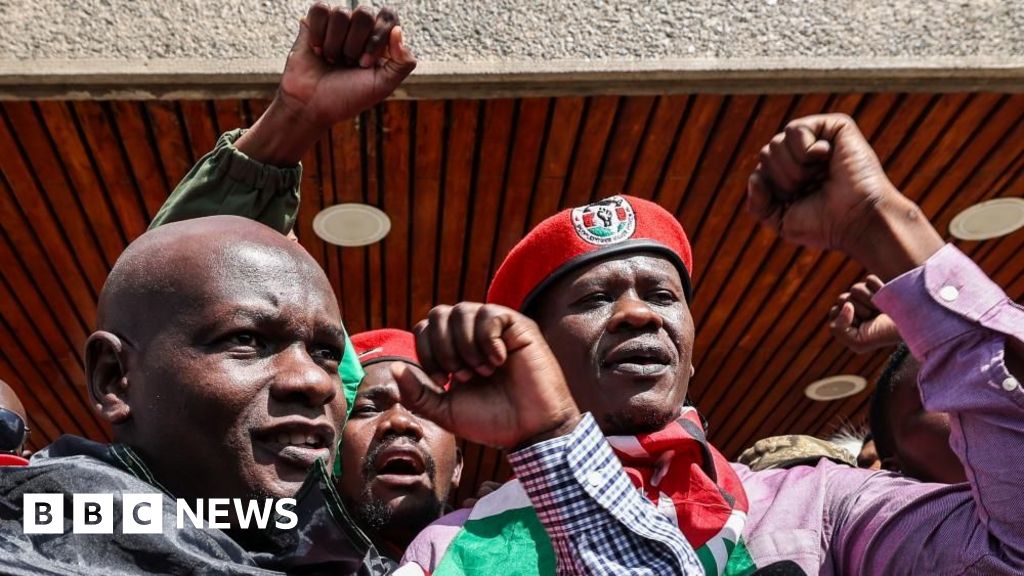Uganda president admits Kenyan activists were arrested and held in 'the fridge'

Uganda's Museveni Admits Arrest of Kenyan Activists, Sparks Rights Concerns
Ugandan President Yoweri Museveni has publicly acknowledged for the first time that two Kenyan activists, Bob Njagi and Nicholas Oyoo, were arrested and detained in Uganda for five weeks. The admission follows weeks of denials from Ugandan authorities and mounting pressure from Kenyan officials, rights groups, and international observers. The activists, who were reportedly supporting Ugandan opposition leader Bobi Wine, were released on Saturday and have since returned to Kenya.
President's Justification Raises Eyebrows
In a live television interview, President Museveni described Njagi and Oyoo as "experts in riots" and stated they were put "in the fridge for some days." This euphemistic reference to their detention has drawn sharp criticism from human rights organizations, who condemn the arbitrary arrest and detention as a violation of international law. Museveni linked the arrests to concerns about foreign interference in Ugandan politics, particularly in relation to recent protests in neighboring Tanzania. He accused unnamed foreign groups of stoking unrest and warned that those engaging in similar activities in Uganda would face consequences.
Kenyan Government Intervention
Museveni stated that he released the activists following calls from "some Kenyan leaders," who requested their return. Kenya's Foreign Minister Musalia Mudavadi confirmed that their release followed "sustained diplomatic engagement between Kenya and Uganda." Upon arrival in Nairobi, Njagi recounted their ordeal, stating, "Thirty-eight days of abduction was not easy. We didn't think that we were going to come out alive because we were being abducted by the military."
Concerns Over Regional Human Rights
The incident has raised serious concerns about the state of human rights and political freedoms within the East African Community (EAC). Activist organization Vocal Africa, which campaigned for the activists' release, called for a "shift towards upholding the human rights of East Africans anywhere in East African Community." A joint statement from Vocal Africa, the Law Society of Kenya, and Amnesty International thanked the Kenyan and Ugandan governments, as well as the public, for their efforts in securing the release of Njagi and Oyoo.
Political Context: Uganda's Upcoming Elections
The arrests occurred against the backdrop of Uganda's upcoming presidential elections, scheduled for next year. Bobi Wine, a popular musician-turned-politician, is expected to be Museveni's main challenger. Wine condemned the arrests, accusing the Ugandan government of targeting the two Kenyans for associating with him. "If they committed any offence, why were they not produced before court and formally charged?" he questioned in a post on social media.
Pattern of Abductions and Detentions
This incident is not isolated. Ugandan security agencies have frequently been accused of abducting and detaining opposition figures and supporters without due process. Similar incidents have occurred across the East African region, raising concerns about cross-border collaboration to suppress dissent.
Last year, Njagi himself was abducted in Kenya, resurfacing a month later after a court order. Kenyan activist Boniface Mwangi and Ugandan activist Agather Atuhaire were detained in Tanzania earlier this year, allegedly subjected to mistreatment, and abandoned at their respective borders. Ugandan opposition figure Kizza Besigye disappeared in Nairobi last year, only to reappear in a Ugandan military court facing treason charges.
Expert Analysis: Erosion of Democratic Norms
Dr. Maria Burnett, a Senior Africa Researcher specializing in East Africa, argues that the incident reflects a worrying trend of democratic backsliding in the region. "The arbitrary detention of these activists, coupled with President Museveni's dismissive language, highlights a growing disregard for the rule of law and international human rights standards," she says. "It also underscores the vulnerability of activists and opposition figures in the region, who increasingly face threats and intimidation for exercising their fundamental rights."
Historical Context: Uganda's Political Landscape
Yoweri Museveni has been in power since 1986, making him one of Africa's longest-serving leaders. While initially praised for bringing stability to Uganda after years of conflict, his government has increasingly been criticized for its authoritarian tendencies, including restrictions on freedom of expression, assembly, and the press. The upcoming elections are expected to be highly contested, with Bobi Wine posing a significant challenge to Museveni's continued rule. The recent arrests of the Kenyan activists have further fueled concerns about the fairness and transparency of the electoral process.
Regional Implications
The situation is being closely watched by regional bodies such as the African Union and the East African Community. The incident raises questions about the EAC's commitment to upholding human rights and democratic principles among its member states. It also highlights the need for greater regional cooperation to ensure the protection of activists and human rights defenders across borders.
Looking Ahead
The release of Njagi and Oyoo is a welcome development, but the underlying issues remain. The Ugandan government's actions have damaged its reputation and raised serious questions about its commitment to democratic values. The international community, including the African Union and the United Nations, is likely to continue to monitor the situation closely and to press Uganda to uphold its human rights obligations.
Originally sourced from: BBC News Africa
